
Greece is in the eye of the two storms tearing Europe apart, first pummelled by austerity and now quarantined to keep migrants at bay. Its people have opened their hearts and homes to those in need, even as wealthier countries close their borders. But with the twin crises festering, this impoverished nation of 11 million is being pushed to breaking point.
The impact of Greece’s two crises is apparent as we visit the former Ellinikon international airport, which stretches along the Aegean Sea, a short drive south of Athens. A decade ago, residents were told the abandoned airport would be turned into Europe’s largest metropolitan park. It could have been Athens' equivalent of Tempelhof Airport in Berlin: a sprawling communal area where families, cyclists, skaters and kite-flyers whizz along disused runways and revel in unkempt meadows. But plans for a park were shelved once Greece began its descent into economic purgatory and was ordered to sell off state property. Then the migrant crisis hit.
More than 4,000 migrants are now crammed into abandoned departure lounges and in crumbling facilities built for the 2004 Olympics. Tents cover every square foot of the former terminal and spread outside into the open air. Families hang up bits of cloth for a little privacy. Men while away the time as best they can while children wander around looking for partners in play. Women hide mostly inside their tents. The air is thick with the smell of unwashed bodies and clothes.
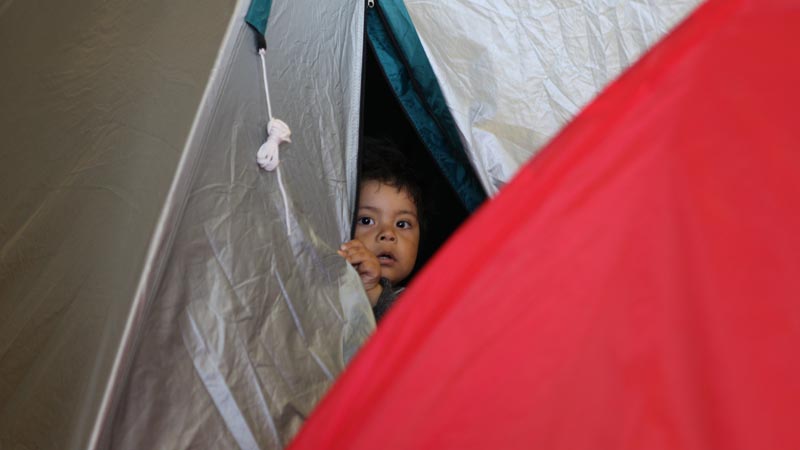
Unlike the countless other squats and NGO-run shelters that have sprung up across Greece since the start of the crisis, Ellinikon is, in theory, an “official” camp. But it is hard to find any signs of officialdom. Other than an unmarked police car parked discreetly outside the structure and dozens of Greek volunteers serving warm meals to a long queue of migrants, there is no evidence of anyone running or overseeing the camp.
“Everywhere is dirty. There is only one doctor and four cold showers for all of us,” says Mallala al-Khany, a 21-year-old student from Mosul in northern Iraq, who has been staying at Ellinikon with his sister for a month, waiting to hear if and when the borders will reopen. “Greek people are good to us, but there isn’t enough food for everyone,” Al-Khany laments, clutching a piece of paper he was given after registering with Greek authorities on the island of Chios. The paper states that he and his sister can stay in Greece for six months, after which they will be deported. The text is in Greek only. Before showing it to FRANCE 24, the Iraqi siblings had no idea what it said.
Can you tell France to send a plane?
Al-Khany has teamed up with friends and relatives to form a tiny camp within the camp. It consists of half a dozen tents grouped together around a miniscule communal area offering just enough space to sit down for a chat on sleeping mats and grey UN blankets. They are all Yazidis, an ethnic and religious minority whose members have been kidnapped, raped and murdered by the Islamic State (IS) group.
Among them is Hassan Haji, a 36-year-old nurse who is travelling with his wife Ines and their four children, aged 1 to 10. Haji is concerned about their safety. The cluster of Yazidis form a tiny minority at Ellinikon. They are surrounded by Afghans, most of them Hazaras who are also routinely persecuted in their home country, notably by the Taliban. Despite the dire conditions, there is no going back for Haji and al-Khany. “We can't return to Iraq,” says the latter. “We have no house, we sold our car to pay smugglers, we have nothing. If there is no other option, we will apply to live in Greece.”
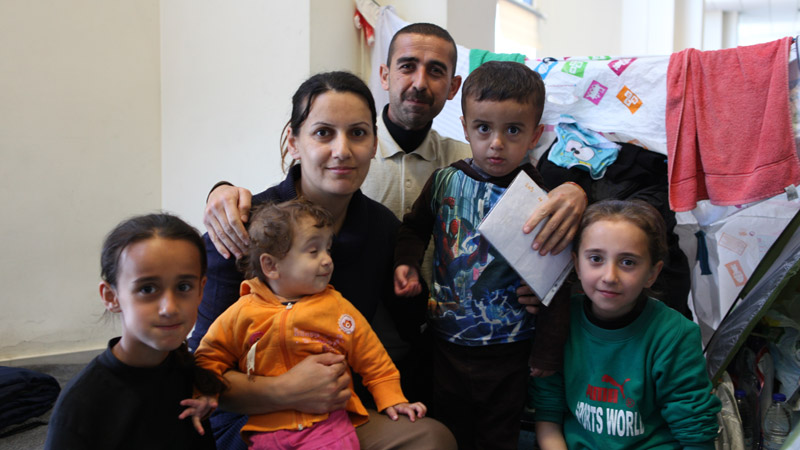
Pervaiz Abdullahi, a 19-year-old former IT engineer from Mazar-e-Sharif in northern Afghanistan, may not even have that option. As European countries scramble to stem the migrant flow, Afghans and Pakistanis have slipped down the refugee social ladder. Most are considered economic migrants, regardless of their personal stories. Never mind that Afghanistan has been at war for most of the past four decades.
“Can you tell France to send a plane?” Abdullahi pleads in fluent English, a legacy of his work with American contractors in Afghanistan. “Germany, UK, France – I am ready to go anywhere.” He tells us about his escape from his home country, where the Taliban killed his two elder brothers. As he speaks, a sign above him reads “Domestic flights” – a dispiriting reminder that, for the time being, his future lies in Greece.
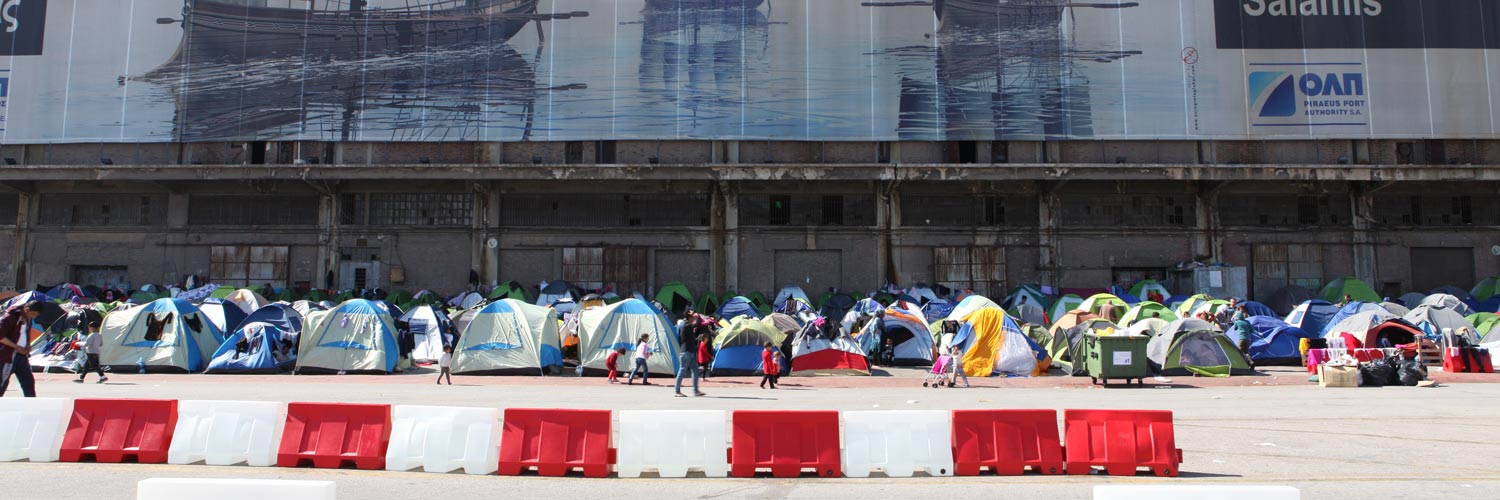
The population at Ellinikon and in the nearby port of Piraeus has swollen as a result of a March agreement between the EU and Turkey, aimed at halting an influx of more than a million "irregular migrants" through Greece since January of last year. Under the deal, which came into force on March 20, migrants arriving on the Greek islands are now individually assessed by the Greek authorities, backed by EU staff. Anyone who does not apply for asylum will be sent back to Turkey, as will anyone whose claim is rejected. For every Syrian migrant sent back, one Syrian already in Turkey will be resettled in the EU – though Europe has made it clear it will take no more than 72,000.
Implementation of the deal has presented Greece with a massive logistical challenge. This involved emptying Greek islands of all those who crossed over from Turkey prior to the deal in order to make way for newcomers and organise expulsions. The fate of those on the Greek mainland is not addressed by the deal, which rights groups have slammed as a gross violation of refugee conventions. They say the agreement has effectively turned Greece into a detention centre – or what Prime Minister Tsipras described as a “warehouse of souls”.
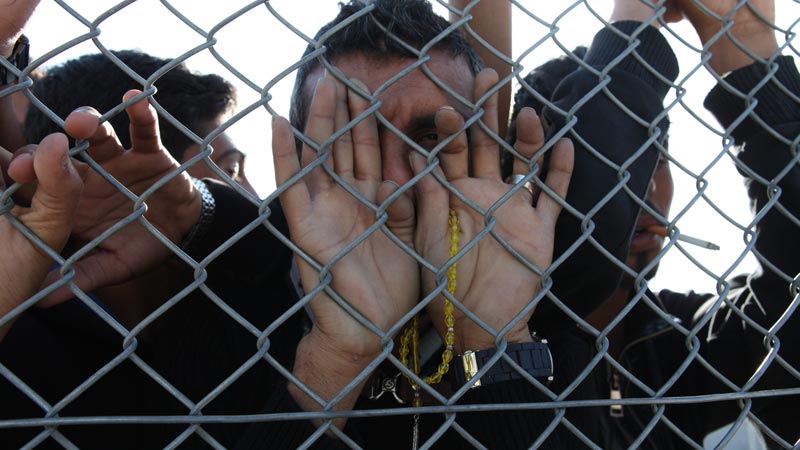
The Greek government has promised to speed up the creation of new reception centres for those stranded in Piraeus and in other makeshift camps. It has bitterly complained that the €700 million in emergency funds promised by the EU to help cope with the crisis are yet to arrive. Local officials are also under pressure to find shelter for refugee families. We drop by Athens' city hall on March 31 as the mayor unveils a scheme to house 1,200 vulnerable asylum seekers in houses and hotels by the summer. Sitting next to him, the UNHCR's head of operations in Greece, Philippe Leclerc, quips that he is pleased to see mayors “compete to house the greatest numbers”, noting that Thessaloniki, Greece's second-largest city, has vowed to find accommodation for 1,400.
You don't choose countries – countries choose you
In the meantime, migrants are reliant on the immense effort put up by NGOs and ordinary citizens to provide food, medical care and some form of shelter. Back in Piraeus, we meet Youssef Abdulaal, a 35-year-old engineer from the Idlib area in northern Syria. He says the world “should thank the Greek people for all their help”. To some extent, the government's absence is a blessing, he adds: “In other countries, they would have sent the army to clear the camp.”
Abdulaal is travelling with his wife and four children. The youngest is barely 7 months old. He says that after five years of war, there is not a single building left standing in his village. “Every year I told my family, 'Be strong, things will get better',” he says. “But now was our last chance. Syria is hopeless.”
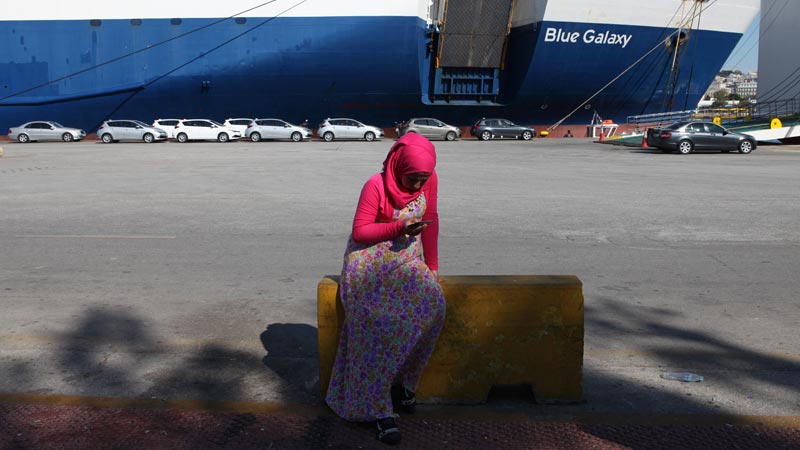
The family have applied for an EU relocation scheme, under which 160,000 refugees stranded in Greece and Italy are due to be redistributed within the 28-member bloc. The scheme was unveiled last September, after months of fraught discussions, but by the end of March only 1,100 had been relocated. European sources blame the delays on a series of factors, including escalated efforts to screen potential jihadists in the wake of the Paris and Brussels attacks, logistical problems over chartering planes, and discrimination against Muslims or blacks in eastern European countries.
Abdulaal has been summoned for an interview in Athens with officials managing the scheme. He was told it would take another month after the interview to find out who, if anyone, will take him and his family. “They told us, 'You don't choose which country, countries will choose you',” he says.
Greek people are so good, so kind people
While most people we speak to dream of going to Germany or Britain, Mushtaq Amiri, who hails from Afghanistan, says his preferred destination is Belgium, where he has family. Amiri says he cannot go back home, “because we have the Taliban and now also ISIS”, he sighs, referring to the Islamic State group. He has spent three weeks living in one of the thousands of tents clustered around the port, still haunted by memories of his perilous crossing from Turkey to the Greek island of Lesbos on a leaking raft packed with pregnant women and babies.
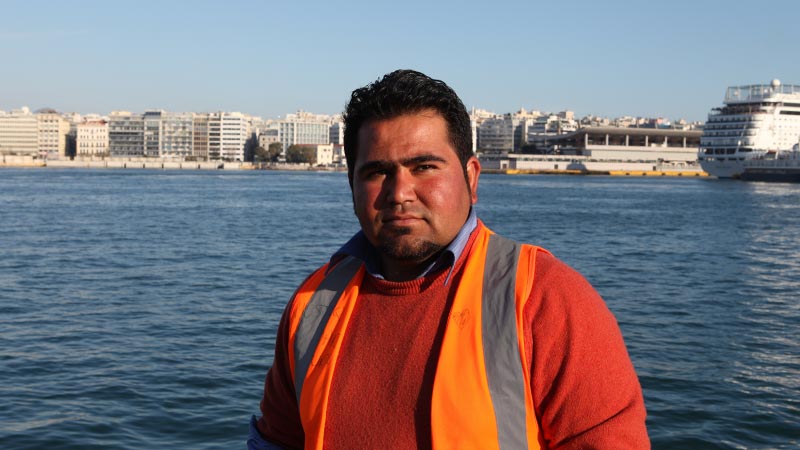
“We used our shoes to empty the boat of water. The babies cried. We all thought we [would] die,” he recalls, shaking his head. But when asked about his welcome in Greece, he breaks into a smile: “The Greek people are so good, so kind people. They bring food, toys, clothes. Simple people, not the government.”
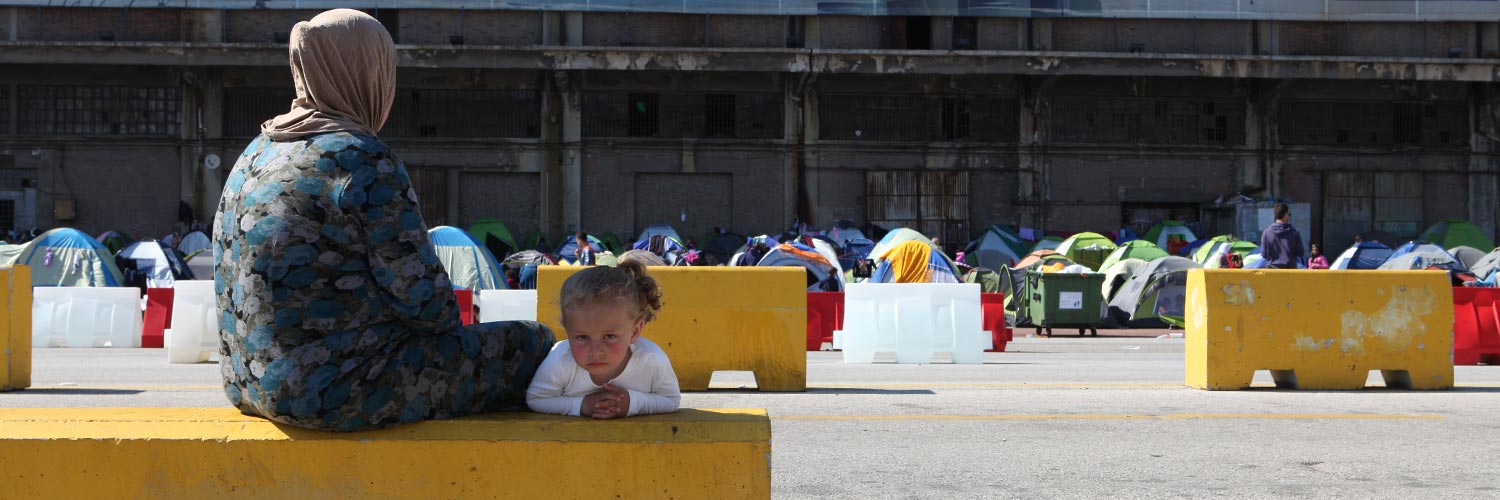
Like many other migrants in Piraeus, Amiri works as a volunteer at the port. With so many different nationalities present between migrants and NGO workers, interpreters play an essential role in sharing information and defusing tensions. In migrant camps across Greece there have been reports of scuffles between different migrant communities, fuelled in part by a sense that Syrian asylum seekers are getting preferential treatment.
“A lot of the time our job is to keep the peace,” says Sotiris Alexopoulos, who heads the local NGO 'Refugees Welcome to Piraeus'. “It helps when we can involve refugee youths to pacify different communities. It is very easy to lose control of things in a place like this.”
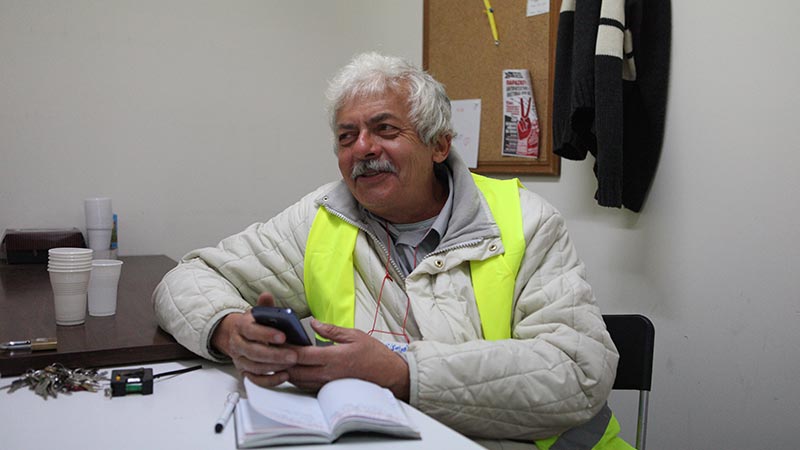
Alexopoulos says his organisation is a product of solidarity networks established during Greece's economic crisis. Many of its members who now volunteer to help migrants did similar work looking after Greek people who fell victim to austerity. When those hardest hit by the crisis went hungry he convinced local supermarkets to give them their leftovers instead of throwing them away. Now he does the same for migrants.
The state only loves Syrians
Other charities have struck deals with local businesses and individuals to collect donations. They include Emfasis, which was founded three years ago to look after the homeless and other vulnerable groups, and now tends to migrants as well. Compared to most NGOs in Piraeus, Emfasis is a well-oiled enterprise. It has its own doctors, pyschologists and counsellors. Most of its funding comes from Greek expats.
Emfasis street workers roam the port three nights a week, distributing hot meals and drinks to migrants and clusters of homeless people who sleep rough around the harbour. Tsoanna Tsoukalas, who heads the street teams, keeps close tabs on the down-and-out. She stops for a chat to check on their needs. “It's important to talk to them, because there are things we might not think of,” she says, handing a warm cup of tea and a book to a man in his 50s curled up under blankets at a bus stop. “For instance, he's an avid reader of history books.”
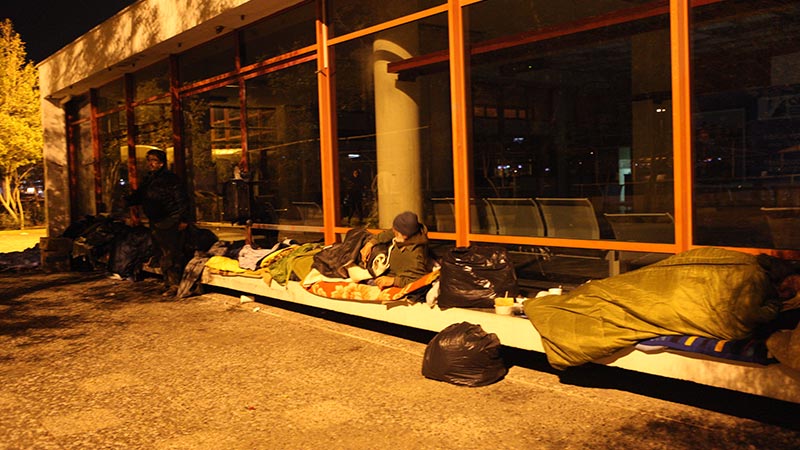
At the next stop we meet Yannis, 52, who has been sleeping rough on and off for the past five years. The former private security agent has found shelter under a portico in Piraeus. He says things have got worse for him since the start of the refugee crisis. Yannis accuses NGOs and the government of giving food and blankets to migrants only. “The state only loves Syrians,” he says. “I want them to go away.”
Tsoukalas, who lost her job during the crisis, estimates that around 27,000 people are without a roof in Athens alone. She says the situation is bound to get worse now that housing laws are changing. As part of the latest bailout deal with its EU and IMF creditors, the Syriza government was forced in November to introduce tougher measures against mortgage holders who fail to honour loans, including the seizure of homes. All the left-wing government could salvage was a guarantee that the poorest 25 percent of homeowners would be protected from foreclosures – a small consolation in a country where four in ten have a disposable income below the poverty line.
